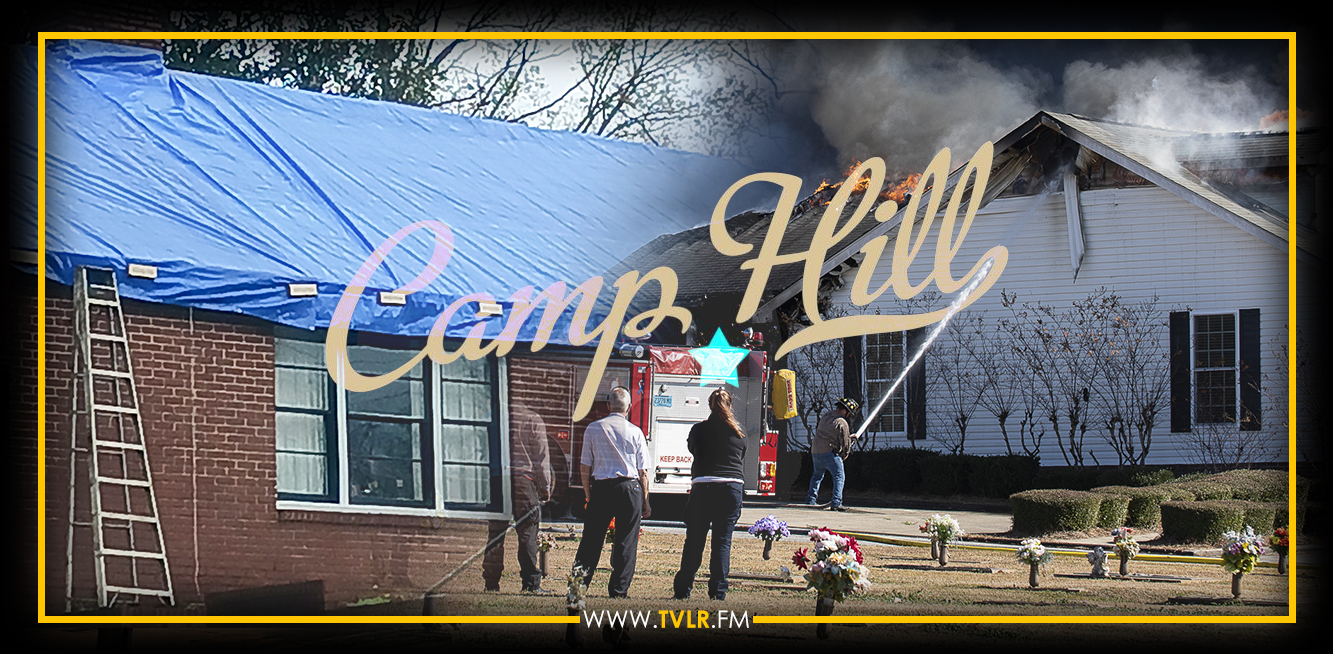TALLAPOOSA COUNTY, Alabama — The community of Camp Hill, Alabama, has been experiencing relentless disasters over the last several weeks. From environmental disasters to economic hardships to even loss of life, the ~1,000 residents are not only feeling like they are being kicked while down, but also feeling like they have been left behind by the surrounding communities, cities, and state at large, as there has been virtually no coverage in the mainstream media, let alone acknowledgement from state legislators and leaders.
Some folks are trying to change that; trying both to help this community reeling from catastrophe and to raise awareness of what’s going on. Among those trying to help is Warren Tidwell, who began doing work in Camp Hill as part of Hometown Action, a collective of (according to their website) “…small town Alabamians fighting to build inclusive and sustainable communities where all residents can thrive,” before founding the Alabama Center for Rural Organizing and Systemic Solutions (ACROSS), which is specifically dedicated to long term recovery in the town.
Tidwell joined The Valley Labor Report last week for a special (and important) interview with Adam Keller, in which he both explained the context and the hardships that have been hitting the small community.
“[Camp Hill] is a little town with about a thousand folks; probably 60% are below the poverty line, and some 90% are African American,” said Tidwell during the interview, setting the stage. “And about three weeks ago we got a hailstorm that showed me what the power of hailstorms can do… we had softball and grapefruit-sized hail, for around 15-20 minutes, throughout the whole town.”
According to Tidwell, nearly the entire town was negatively impacted in some way, shape, or form, including between 80-90% of the community’s vehicles being totaled due to extreme hail damage.
“We’ve got a fairly vulnerable population — a lot of elderly folks, a lot of developmentally-disabled folks — and it’s a tough situation,” Tidwell continued.
Tidwell went on to say that almost 500 residential homes in the area will need roof repairs or new roofs altogether, as will almost all of the town’s businesses, schools, and churches, most of which are currently relying on tarps to keep outside elements at bay until the repairs can take place.
“It’s distinctly devastating, in that uninsured/under-insured folks can’t get their roofs fixed; some can’t even afford the deductibles, and even if they could, they’re not getting enough money to fix these roofs.”
All of this, and yet no help from the outside or the state government, not to mention that (at the time of this interview) Camp Hill was yet to even secure an official “Disaster Declaration,” which would open access to desperately needed emergency resources.
One bright point is that, while statewide leadership response has been almost nonexistent, the local government in Camp Hill has been on the frontlines trying to help their community pick up the pieces.
“The local leadership has been fantastic; they’re doing everything they can for their people,” said Tidwell. “We’re working with county commissioner T.C. Coley, who has just been phenomenal.”
According to Tidwell, Commissioner Coley has been part of assessment and recovery efforts every step of the way, as well as making persistent phone calls to state governing authorities to try to get some kind of help.
Citizens of Camp Hill have not had much of a choice but to band together and support each other as best as they can. While this sort of “mutual aid” effort has been a big help, there’s ultimately only so much the people can do in their own power without some sort of governmental assistance.
And unfortunately, this storm disaster is only one of the recent major disasters that have rocked the town.
On Thursday, April 20th, a mass shooting took place at a birthday party in Dadeville, Alabama, just a couple miles from Camp Hill, and in fact several Camp Hill residents were at the party when the massacre unfolded that left 4 people dead and 32 people injured.
“We’ve got a lot of folks here in town with injured children,” Tidwell said. “We have a family that’s been displaced; their son is going to be paralyzed from the waist down for the rest of his life.”
Some of those injured or killed were children whose parents have been part of the town’s post-hailstorm recovery efforts to get roofs repaired, increasing an already emotionally and mentally heavy burden.
“We had a lot of our best kids injured and taken away from us.”
And there are still more hardships that the community is facing. Watch the full interview with Warren Tidwell on YouTube:
